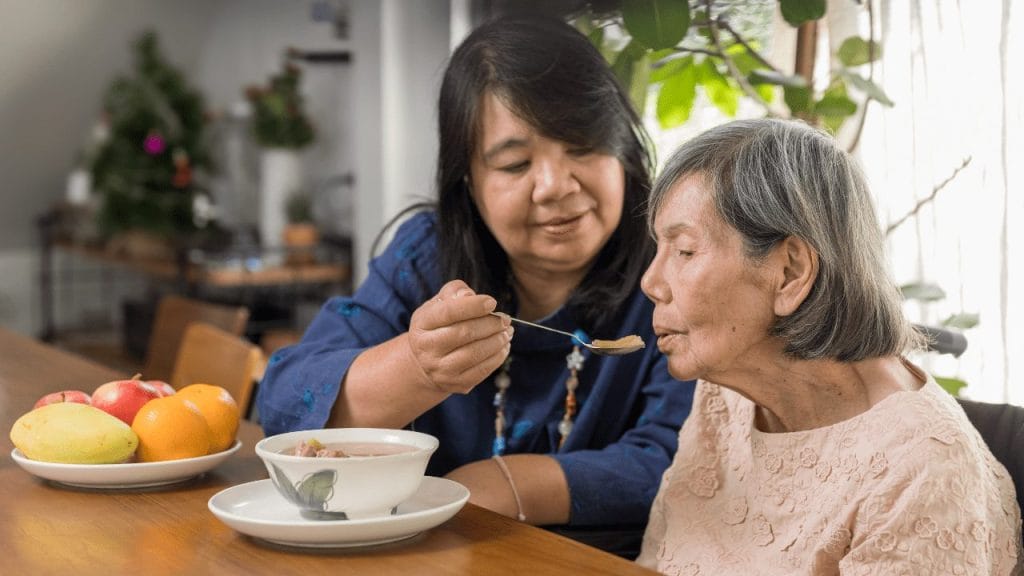Choking is a serious risk for everyone, but it can be particularly dangerous for elderly individuals. This blog post will discuss why the elderly are more vulnerable to choking incidents and provide practical tips to prevent choking in the elderly. We will also highlight the importance of having a reliable anti-choking device like LifeVac on hand.
Prevent Choking in the Elderly: Why They Are More Vulnerable to Choking Incidents
Understanding why it’s crucial to prevent choking in the elderly begins with recognizing the unique challenges they face. As people age, several factors increase their susceptibility to choking, according to numerous studies.
- Decreased muscle strength: Elderly individuals often experience a decline in muscle strength, including the muscles used for swallowing. This can make it more difficult to chew and swallow food properly.
- Dental issues: Many elderly people have dental problems or dentures, which can affect their ability to chew food thoroughly.
- Medical Conditions: Conditions such as Parkinson’s disease, can impair the coordination needed for safe swallowing.
- Medication side effects: Some medications can cause dry mouth or reduce saliva production, making it harder to swallow food.
- Reduced sensitivity: The elderly may have a diminished gag reflex or reduced sensitivity in their throat, which can prevent them from noticing when food is lodged in their airway.

Tips to Prevent Choking in the Elderly
Preventing choking in the elderly involves creating a safe eating environment and being aware of their specific needs. Here are some practical tips:
- Modify food textures: To prevent choking in the elderly, serve soft, easy-to-chew foods. Puree or chop foods into small pieces to make them easier to swallow. Avoid tough, dry, or sticky foods that can be difficult to manage.
- Encourage slow eating: Encourage elderly individuals to eat slowly and take small bites. Remind them to chew their food thoroughly before swallowing.
- Create a safe dining environment: To prevent choking in the elderly, ensure that they are positioned correctly by having them sit upright, ideally at a table. Remove any distractions and potential obstacles from the dining area, and ensure the room is well-lit. This setup helps them focus on eating and reduces the risk of choking.
- Maintain good dental health: Regular dental check-ups and proper denture care can help prevent chewing difficulties that could lead to choking.
- Supervise mealtimes: Whenever possible, have someone present during meals to assist and supervise eating. This is especially important for individuals with severe medical conditions or cognitive impairments.
- Use adaptive utensils: Specialized utensils and plates can help individuals with limited mobility or coordination eat more safely. Look for utensils with larger handles or non-slip grips.
- Educate on swallowing techniques: Teach the elderly to tuck their chin slightly down when swallowing, as this can help close off the airway and direct food into the esophagus.
- Stay alert for warning signs: Watch for signs of swallowing difficulties, such as coughing or throat clearing during meals. If these signs are frequent, consult a healthcare professional for further evaluation and recommendations.

The Importance of LifeVac in Preventing Choking Incidents
Even with the best precautions, choking emergencies can still happen. That’s why it’s essential to have a reliable anti-choking device like LifeVac on hand. LifeVac is a simple, non-invasive suction device that can clear an airway obstruction in seconds. It’s easy to use, requires no training and is safe for use on individuals of all ages, including the elderly.
Having LifeVac in your home or care facility provides peace of mind knowing you are prepared to handle a choking emergency effectively. It is a vital tool to prevent choking in the elderly, ensuring that help is always within reach.
Conclusion
Choking is a significant risk for the elderly, but with the right precautions and tools, it can be effectively managed. By understanding the reasons why the elderly are more vulnerable to choking and implementing practical strategies to prevent it, you can help ensure their safety and well-being. Don’t wait for an emergency to take action; equip your home with LifeVac and protect your loved ones from the dangers of choking.
Get your LifeVac today and be prepared to prevent choking in the elderly. Visit www.lifevac.com.cy for more information and to purchase your LifeVac device. Your family’s safety is worth it.



